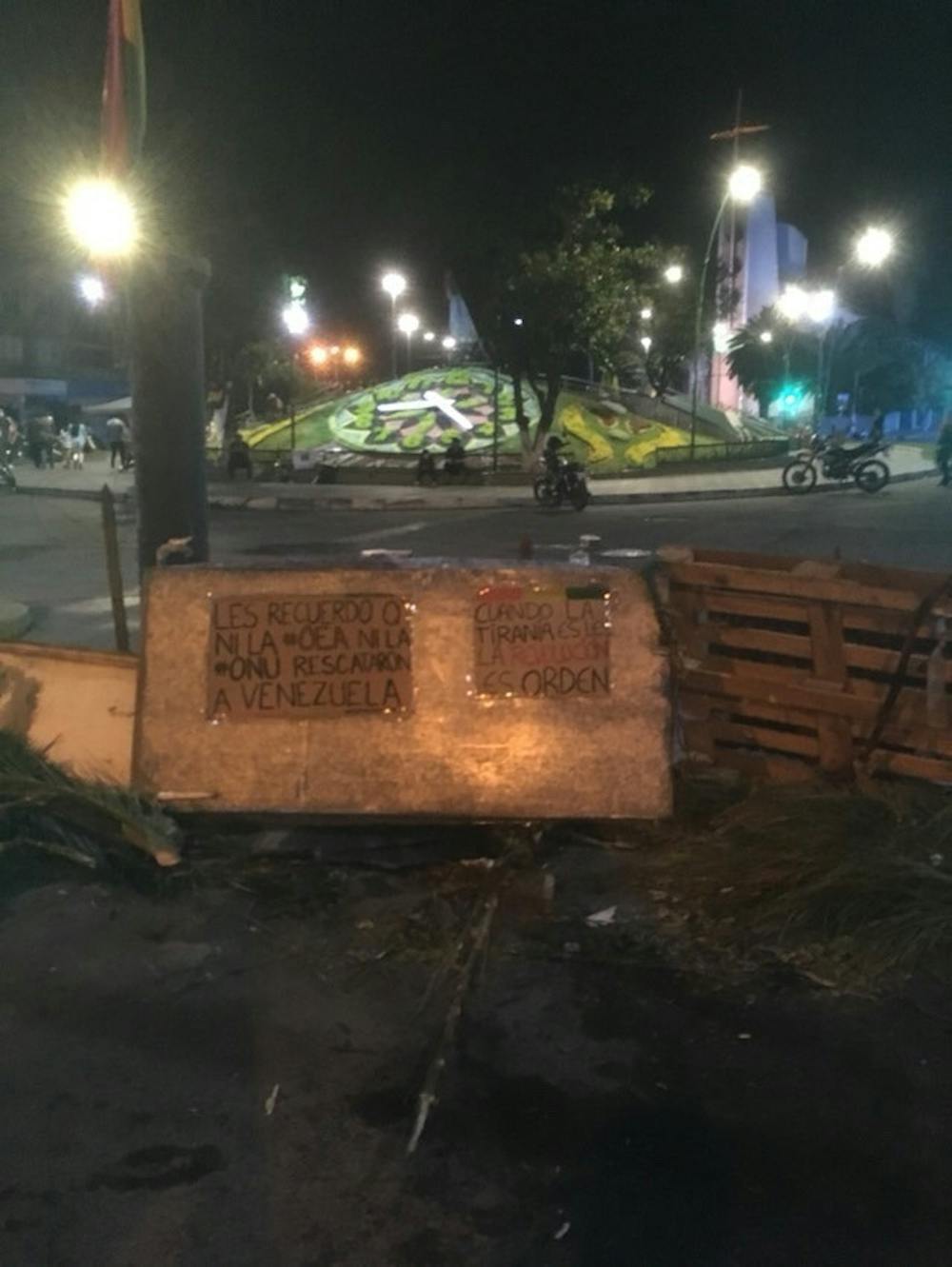On Monday, Nov. 11, the University’s Bridge Year Bolivia students relocated to Cusco, Peru, after political upheaval in the country prompted concerns about student safety.
Deputy University Spokesperson Mike Hotchkiss maintained that the town of Tiquipaya, Bolivia, where students had been staying, saw no protests or violence following the heavily disputed election. However, the nearby city of Cochabamba “experienced significant civil unrest,” and transportation disruption in the area affected the students’ activities.
Following recommendation for evacuation by the University’s emergency assistance provider, International SOS, students moved to Peru at the beginning of this week.
Bolivia has been embroiled in a political crisis since accusations arose that Evo Morales, the country’s longest serving and first indigenous president, stole an election on Oct. 20 of this year. Some credit Morales for having ushered in a new egalitarian era for Bolivia, but earlier devastating wildfires, which a number of critics blamed on his loosened environmental protections, triggered unrest among his support base. After extending his term in 2014 and again in 2016, Morales’ run this fall — which would have kept him in power until 2025 — was rife with controversy.
Technical difficulties interrupted a preliminary vote count; the count resumed 24 hours later, ostensibly revealing that Morales had won by a slight margin. An investigation by the Organization of American States (OAS) found evidence of electoral manipulation, but critics questioned the bias of the OAS, citing late-reporting rural areas as the cause of Morales’ unexpected lead.
Violent protests about the contested election claimed at least 10 lives, and a widespread police mutiny prompted Morales to resign on Sunday, Nov. 10; he fled north to escape what he branded a coup d’etat. An interim administration, led by Jeanine Áñes, has assumed power, promising to hold new elections in the near future.
The Novogratz Bridge Year Program is a gap year program sponsored by the University, in which students enrolled at the University defer their attendance for one year and spend 9 months abroad doing public service. Students participating in Bridge Year Bolivia arrived in early September and began their homestays in Tiquipaya, Bolivia, at the end of that month.
The students currently participating in Bridge Year Bolivia are Mia Beams ’24, Lauren Fahlberg ’24, Theo Knoll ’24, Kat Nix ’24, Olivia Ragan ’24, Joseph Sexton ’24, and Chiara Vilna-Santos ’24. The students all expressed deep affection for their host families, as well as for the country of Bolivia. Having been relocated to Peru, all the students described how much they miss their homestay families.

“They learned that I always drink my tea with a ton of milk, and I learned that when we made salads they always wanted me to cut the vegetables super thin,” Ragan said. “I’ll miss my host mom and making bread with her at night, just really simple daily things that make me miss Tiquipaya.”
The students noted that though they sensed the political tension in Bolivia during their stay, as foreigners they could never fully understand the situation. Nix described how she gained a first hand look at Bolivian politics through her homestay, as her homestay mother was a prominent leader in Tiquipaya.
“She had a unique platform where she would help organize a blockade or participate in some demonstrations … in that sense I got to see a very strong anti-Evo side with them actually participating and going out and getting that first hand look at people protesting,” Nix explained. “Other kids here had a divided household, which I also think provided a unique perspective.”
The students shared that in their time in Tiquipaya and Cochabamba, they never felt unsafe.

All the students wanted to bring attention to their privilege as American citizens to leave the country, while their homestay families and instructors had to stay.
“People’s lives are going to be dramatically changed by the events that are happening … For the Bolivian people, this is everything,” Knoll said. He urged other University students to familiarize themselves with the political situation in Bolivia, stressing that the news cannot always capture the nuance of the circumstances.
Ragan echoed this sentiment, stating: “what you read is one fraction of the story.” She also addressed their evacuation from the country.
“It’s important to recognize the international forces at play and how Princeton took us out of Bolivia,” Ragan said. “If we hadn’t been able to leave as easily as we did, they would have pulled out all [the] stops to get us out of Bolivia, whereas the United States would likely never accept refugees from Bolivia for this situation.”
Nix mentioned that the students’ instructor, who is Bolivian, did not accompany them to Peru.
“We all want to emphasize how very much we feel that this situation isn’t about us,” Nix said. “We care a lot about Bolivia and we’ve made a connection … we left and it was very easy for us to leave, not emotionally, but physically, and we also recognize our privilege in being able to leave. People couldn’t leave even if they wanted to. Our instructor didn’t come with us, his family is there, his life is there.”
For the students, though their next steps are planned, the path forward remains uncertain.
“We expect the students will remain in Southern Peru for at least the next three weeks, and we will make a determination about the appropriate path forward during that time frame,” Hotchkiss wrote in an email to The Daily Princetonian. “Much of that decision, of course, depends on how the political situation in Bolivia evolves.”








